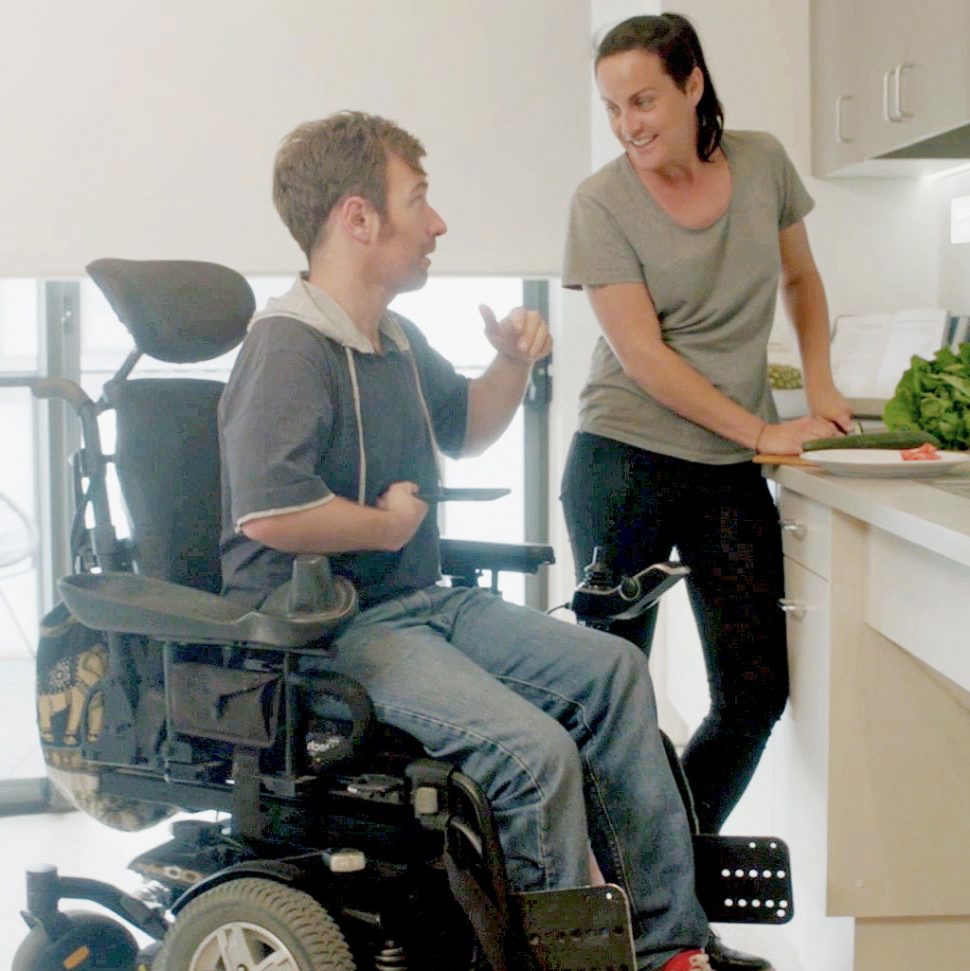New SDA rules are a win for participants and for the NDIS

There have been some great changes recently to the rules about Specialist Disability Accommodation (SDA). We know it can be hard to stay on top of everything that is happening so we have asked our good friend and resident SDA expert Dr George Taleporos to explain it all for us.
In the last couple of weeks there have been some important changes made to the rules around SDA. The changes mean that NDIS funded housing for people with high support needs is one step closer to being a little less special and a little more mainstream.
The new rules will make it possible for people to live a more ordinary life.
For the first time, people with disabilities will be allowed to share their SDA homes, with people who do not have a disability. This means that people who need SDA will no longer be forced to separate from their families.
This is an important change to the rules – and a change that many of us have been advocating for since SDA was introduced.
SDA residents can now share a room if they choose to. It must be their choice and they need to write to the CEO of the NDIS for permission.
While this might seem like a hassle, it is important. Because it needs to be your decision – not the decision of a provider. The CEO can only refuse if it is likely to have a negative impact on you or other people with SDA funding who you might be sharing with.
As a result of the changes, couples can share a bedroom and children can share a room with their siblings. You can have more than five people living in SDA if they are from the same family.
You can even have a housemate live with you.
The government has dropped some of the old rules that required all the shared areas and the majority of bedrooms in an SDA house to meet the minimum design requirements for SDA. This makes sense – if there are people living in the house who do not have a disability they don’t need bedrooms that are built to the SDA standard.
The new rules allow a house to be enrolled as SDA if the shared areas, at least one bedroom and at least one bathroom all meet the minimum design requirements.
So we’re likely to see some new types of housing being built with a range of options to suit the different needs and living arrangements of people in the community.
Another important part of the rules that you should know about is that services that provide support in SDA, also known as Supported Independent Living (SIL), cannot stop you from using other SIL providers. I have heard that some providers have been preventing residents from choosing who provides their support. This is not acceptable and it is against the rules. Participants need to be in control of who provides their support.
We fought hard for the right to decide who we live with and how we are supported.
These changes were a result of strong advocacy from people with disabilities, disability organisations and some ethical providers.
The old rules, that prevented people with disabilities from living with families and friends, were bad for participants.
And they were also bad for the NDIS. By separating people from their families, NDIS participants relied more on the NDIS for support. As a result, they needed more funding in their plan. Which made everything more expensive for the government.
It also had a negative impact on people’s lives and on the outcomes that they were achieving. Preventing people from having control and choice over who lives in their home makes it harder for people to find partners and develop relationships.
In Australian society, its normal for people to move in together before they marry or start a family. But this was against the rules for people who relied on SDA.
These changes remind us about why it is important to listen to people disabilities when developing policy.
We know that disability policy should support people to live ordinary lives and to have the same opportunities as everyone else.
We know that disabled people should not be separated from the rest of the community.
We know that people with disabilities have the right to choose who they live with and who provides their support.
We have been telling the government these things for a very long time.
Thankfully, the government has listened and the changes have arrived.
Want more information?
The NDIA have also recently started to revise the guidelines that set out what is reasonable and necessary. They also set out how they make their decisions.
The first revised guidelines they have released are about Specialist Disability Accommodation and Supported Independent Living.
You can also find out more about SDA on the NDIS website
You can also read some of Dr George’s previous articles – about housing, about young people living in nursing homes and about the need for better health care for people with disability.


Join the conversation